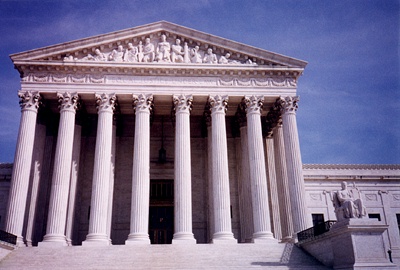All Nonfiction
- Bullying
- Books
- Academic
- Author Interviews
- Celebrity interviews
- College Articles
- College Essays
- Educator of the Year
- Heroes
- Interviews
- Memoir
- Personal Experience
- Sports
- Travel & Culture
All Opinions
- Bullying
- Current Events / Politics
- Discrimination
- Drugs / Alcohol / Smoking
- Entertainment / Celebrities
- Environment
- Love / Relationships
- Movies / Music / TV
- Pop Culture / Trends
- School / College
- Social Issues / Civics
- Spirituality / Religion
- Sports / Hobbies
All Hot Topics
- Bullying
- Community Service
- Environment
- Health
- Letters to the Editor
- Pride & Prejudice
- What Matters
- Back
Summer Guide
- Program Links
- Program Reviews
- Back
College Guide
- College Links
- College Reviews
- College Essays
- College Articles
- Back
The Scandalous Trial of Oscar Wilde
The Old Bailey, London’s main courthouse, was filled with the heavy odour of extraordinary intrigue. Held back by the fragile glass windows, even the biting winter sleet wanted audience to the proceedings of the courtroom as it gusted against the smooth expanse of the windowpanes, hungry for information. Sitting enraptured, London’s social elite murmured their captivation with Oscar Wilde and his “gross indecencies.” The compact benches were filled with curious spectators who scoured the atmosphere with the eyes of a bird struggling to catch its dinner in the night, trying to snatch whatever gossip floated through the congested aisles. It was a mass unswayed by logic adhering to the idiotic fashions of the time. In the center of all the cacophony stood Oscar Wilde, the man who had seduced the attention of London with his scandalous defiance of the Criminal Law Amendment Act. Wilde, a peculiar specimen of a thirty-year-old, rubbed his moist palms nervously against the unyielding mahogany wood. He was extremely intelligent, with a nose as sharp as his intellect, an egg-shaped face, and droopy eyes. Wilde was filled with largely unpopular opinions, which were generally consistent with the geniuses of the time. He stood simultaneously encircled comfortingly and separated from the world whose discrepancies he challenged with wit and insight. A world too terrified to reveal its true heart and follow its gut instincts thus falling into society’s trap, a bottomless hole which blackened anything personal, anything individualistic, anything original. A trap which created a perfect society applied to naught.
Flaws are apparent in every seemingly ‘perfect’ society, for it is the slight bend in a straight line that makes one mesmerized by looking at an utterly linear stria. One’s motive to yield to society and to be identical to one’s neighbor is derived from the fear of revealing one’s true self; for in this society uniqueness is anticipated as a weakness and society will seek out these qualities and extinguish them, snuff them out the moment some flickering spark of individuality is encountered. It is the fear of the unknown that is the drawback of the human race. Importance is given to superficial aesthetics for we know their limits, whereas it is the soul we fear and its illimitable depth and underlying nuances which overwhelm the human mind.
A sudden change in atmosphere ignited the courtroom when Queensberry strode inside. The man’s confidence dominated the atmosphere, making Wilde pale in the shadow of his magnificence. Queensberry showed no outward signs of fluster, his face a mask of cold outrage. His hands, one on his cane and the other at his side, were relaxed and wholly unlike Wilde’s, which were sweaty and busy with nervous energy. It was a fantastical sight to see as the father of Wilde’s lover cleared his throat in preparation to arrogate Wilde’s affair with his son and dispose of Wilde unceremoniously after the trial.
“With my own eyes I saw you in the most loathsome and disgusting relationship, as expressed by your manner and expression. Never in my experience have I seen such a sight as that in your horrible features,” exclaimed Queensberry in his shrill voice. Queensberry, a father publically shattered by the immoral creature Wilde had turned his son into, was red as a tomato even before he opened his mouth to speak of the hideous scandal.
“Those who find the ugly meanings in beautiful things are corrupt without being charming. This is a fault. Those who find beautiful meanings in beautiful things are cultivated. For these there is hope,” retorted Wilde, winning the applause of the entire audience with his elaborate retaliation.
“Silence! Mr. Wilde, have you ever wondered how a perverted novel might be a brilliant book,” sputtered Edward Carson, through his yellow, horribly crooked teeth which were not his only contorted feature. For him, this trial was merely a method of retaliating against his rival from the Trinity College in Dublin; unfortunately his ulterior motive made him as shallow minded as every other breathing being in the room.
"There is no such thing as an immoral work, books are well written, or badly written,” asserted Wilde as he became profoundly uncomfortable by the controversies speared at his vulnerable soul.
“All trials are trials for one’s life, just as all sentences are sentences of death, and three times I have been tried… the third time to pass into prison for two years. Society as we have constituted it, will have no place for me, has none to offer; but Nature, whose sweet rains fall on just and unjust alike, will have clefts in the rocks where I may hide, and secret valleys in whose silence I may weep undisturbed”, stated Wilde earnestly.
Wilde possessed a majestic power that created in him an unwavering commitment to an ideal society which, like his very own nature, empowers all individuals, those who conform and those who are different, equally.

Similar Articles
JOIN THE DISCUSSION
This article has 0 comments.
